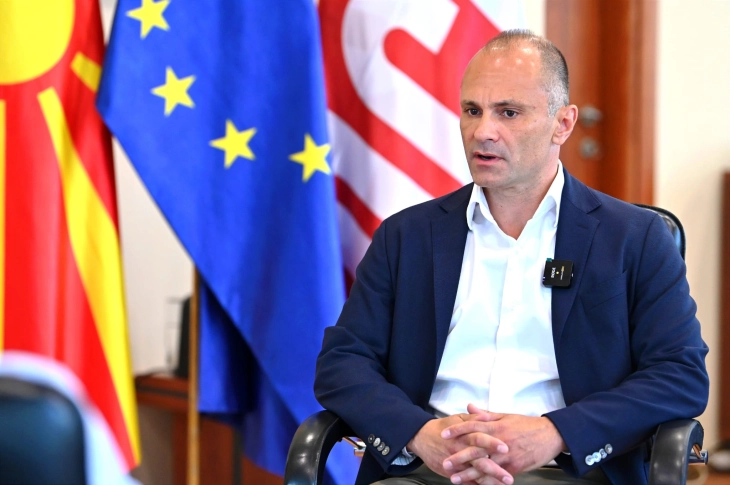Filipche: Loan from Hungary is Mickoski's business plan at expense of citizens
- SDSM leader Venko Filipche has strongly criticized the move to place the country in economic and political dependence on another country, calling it a major mistake. Filipche warns that three generations will bear the burden of the loans taken by Prime Minister Hristijan Mickoski and VMRO-DPMNE, which he claims are driven by questionable motives.

Skopje, 17 August 2024 (MIA) – SDSM leader Venko Filipche has strongly criticized the move to place the country in economic and political dependence on another country, calling it a major mistake. Filipche warns that three generations will bear the burden of the loans taken by Prime Minister Hristijan Mickoski and VMRO-DPMNE, which he claims are driven by questionable motives.
In an interview with the weekly magazine Fokus, Filipche described the loan from Hungary as essentially a business plan by Mickoski that will undoubtedly harm the citizens.
“Mickoski criticized SDSM for allegedly being subservient to the EU, but now he himself is the biggest supporter of Hungary, a country with openly pro-Eastern tendencies and an unclear role within the European Union. With such a debt to Hungary, it is inevitable that both political decisions and the country’s overall strategic orientation will be under strong Hungarian influence. Another major concern is the potential for corruption involving these funds,” Filipche said.
One of the reasons for taking a loan from a country rather than a financial institution, according to him, is the reduced control over how the money will be spent.
“This suggests that the money will be spent in an uncontrolled manner, leading to significant corruption. Our information indicates that VMRO-DPMNE is already in talks with companies for municipal projects, and we can expect to see favoritism towards businesses affiliated with VMRO-DPMNE,” Filipche said.
Right after the loan was announced, there was news that a telecommunications company connected to Hungarian Prime Minister Viktor Orbán is entering the country. This is being touted as a major investment, but it is unlikely to benefit citizens or the economy. The government has yet to explain how Hungarian mobile operator 4iG will enter the country given its strategic partnership with a Chinese company, which conflicts with national regulations requiring the use of telecommunications systems from trusted providers, Filipche noted.
Regarding the Criminal Code, Filipche noted that the Ministry of Justice already has a new Criminal Code that has been prepared over a long period by an expert working group. He recalls having urged Prime Minister Mickoski to put the draft text up for public discussion and to have it adopted as soon as possible, but says his proposal was swiftly rejected by the leader of the ruling VMRO-DPMNE.
He denies that the amendments to the Criminal Code, adopted by the SDSM and DUI government, were intended to protect officials from these parties.
Regarding the claim that trust in the judiciary has significantly declined during the SDSM government, Filipche believes it was a mistake not to implement all the projects outlined in the Judicial Reform Strategy in a timely manner. However, he also notes that many crucial reforms and laws were enacted.
In regard to VMRO-DPMNE's request to dissolve the councils of judges and prosecutors, Filipche reminds that SDSM has already clearly stated its position: any reform in the judiciary must be monitored and approved by the international community.
Photo: SDSM







